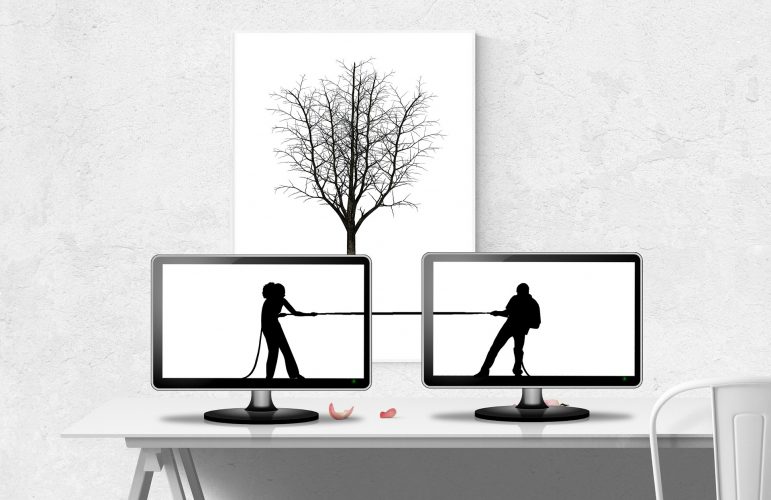Divorce lawyer Frances Ross Nolan, a partner at the Birmingham firm Nolan Byers, remembers hearing about the coronavirus back in February. It was this sort of vague notion there was this thing out there. Then she received an email from a client whose kids were scheduled to go on a cruise with the other parent. The mom was concerned about the virus.
“That was probably the first work-related, bring it into this universe experience that I had,” Nolans says. “That email was March 4th.”
By middle of the month, Nolan, like so many others, shut down the office and began working remotely. The COVID-19 pandemic has been an issue for every corner of the legal world. Jury trials in Jefferson County are on hold. The Alabama Supreme Court has suspended most in-person matters as well.
It’s a challenge for those in family law because many meetings tend to happen in-person. But they’ve been able to keep practicing with a few adjustments.
The bulk of Nolan’s work is negotiation. She says she tries to reach agreements among people who aren’t coming from a hardened, adversarial stance. Her clients don’t necessarily need to argue in a court room, which means a toolbox of phone, email, FaceTime and Zoom is enough. It’s business as usual, just the mechanisms have changed.
“You can really work a case without being in a courtroom,” says Jessica Kirk Drennan, founder of Birmingham-based Kirk Drennan Law.
One important change came in an emergency order from Governor Kay Ivey. It allows notaries to work over video conference. Without the order, the notary and witnesses would have to be in the same room.
Legal work that’s transactional including contracts, patents and family law is still getting done, despite COVID-19 social distancing. That’s according to Keith Lee, founder of LawyerSmack, an online community for attorneys. He says the coronavirus has forced lawyers to incorporate new technology. That doesn’t bother younger or more tech savvy attorneys, but Lee says it’s painful for others because the legal community tends to be resistant to change.
“What this is doing is accelerating change,” Lee says. “So I think change that would naturally, organically have happened over the next five to ten years, is instead happening in the next twelve to 18 months.”
Lee says there are privacy concerns. Big firms are avoiding Zoom in favor of video conferencing platforms that are more secure. Lee expects some of these changes to stick around after the outbreak subsides. He says that could be a good thing if it lowers costs and the savings is passed on to clients.
“For law firms, maybe you don’t need the marble floors and mahogany offices all the time,” Lee says. “Do you really need the most expensive space with nicest everything? Or can you really do a lot of this remotely?
Nolan hopes the changes aren’t temporary.
“To make a client come to my office to notarize a document is kind of silly if they can do it from the comfort of their office and we can do it by Zoom,” Nolan says. “That’s so much more efficient.”
Drennan doesn’t see everything going remote. For instance, contempt hearings over video would be tough.
“You hold someone in contempt and the judge says you’ve got to relinquish yourself to the sheriff’s office. I’m not sure how that would work,” she says.
Nolan and Drennan agree that, sadly, divorces will probably increase because of the pandemic. There are indications domestic abuse is up as people are at home more. The close quarters could add friction to already troubled relationships. Attorneys will be there to take up those cases, however the actual businesses is conducted.

